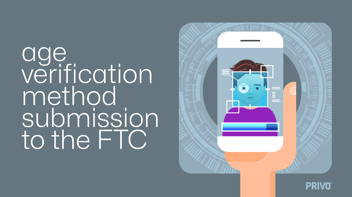
Apple's Announcement is Not All Bad News for Kid Apps
June 30, 2020
Apple’s latest announcement will have a huge impact on app developers and mobile marketing, however it's not all bad news for the kids space. Apple did not announce the retirement of its Identifier for Advertisers (IDFA) when iOS 14 launches this September 2020, as predicted. However, it is going to be an Apple requirement that all users of apps will now be asked to allow or not allow tracking at the outset. Most users faced with such transparency are likely to say no. The move will have a significant impact on mobile marketing companies providing ads and attribution services, companies such as AppsFlyer, Kochava, Singular and Adjust to name but a few.
It will impact revenue generation for app developers across the board particularly for those with free apps that rely on ads rather than a paid for or subscription model. The mobile ad industry is said to be worth billions of dollars a year. However, privacy advocates will welcome this move, choice and transparency are hugely important in the world of personal data protection. They are key requirements when it comes to complying with the General Data Protection Regulation (GDPR).
Complying with COPPA and the GDPR, as it relates to children, in apps for kids already brought its own challenges. Attribution is a difficult hurdle in child-directed services. Some attribution providers offer mixed audience solutions and restrict collection from users under the age of consent and few offer compliant solutions for primarily child-directed apps. One of Apple’s moves to counter the effects of limiting the collection of an IDFA is to use their in-house attribution system, SKAdnetwork. The SKAdnetwork is able to validate a conversion without revealing personal information. When a user clicks on an ad that brings them the app store to download, Apple sends a postback to the ad network. This postback does not include any user or device specific information, meaning advertisers will know that an install has happened but won’t be able to connect that install with a specific user or device.
The upside of this in the kid’s space is that attribution maybe achievable in child-directed services for many more app developers. Developers who may have either avoided using attribution or have been forced to use alternatives that reduce accuracy, could now rely on postbacks directly from Apple.
What isn’t yet clear is the impact on advertising that is managed compliantly in apps known as contextual. These ads do not track the user but show content that is relevant to the demographic in general or to the app they are shown in. To do this the ad collects IDFAs for the purposes of frequency capping or other permitted uses. The identifiers are not used to build a profile of the child or follow them across the online world showing the ads and promotions based on their behavior. Contextual ad revenue can support a free app business model. Without this revenue stream many of the apps in the kids space, apps that are providing relevant and interesting content for kids, could go out of business.
It will be interesting to see how Apple intends to manage the changes in relation to child directed apps when it comes to opt in, opt out and IDFAs used to provide a service compliant with privacy standards. We will be monitoring and hoping for clarity soon.
Written by:
Claire Quinn, VP Compliance & DPO
Celeste Rollason, Third Party Program Manager


 Blog
Blog





 Facebook
Facebook Linkedin
Linkedin Blog
Blog

 Twitter
Twitter

